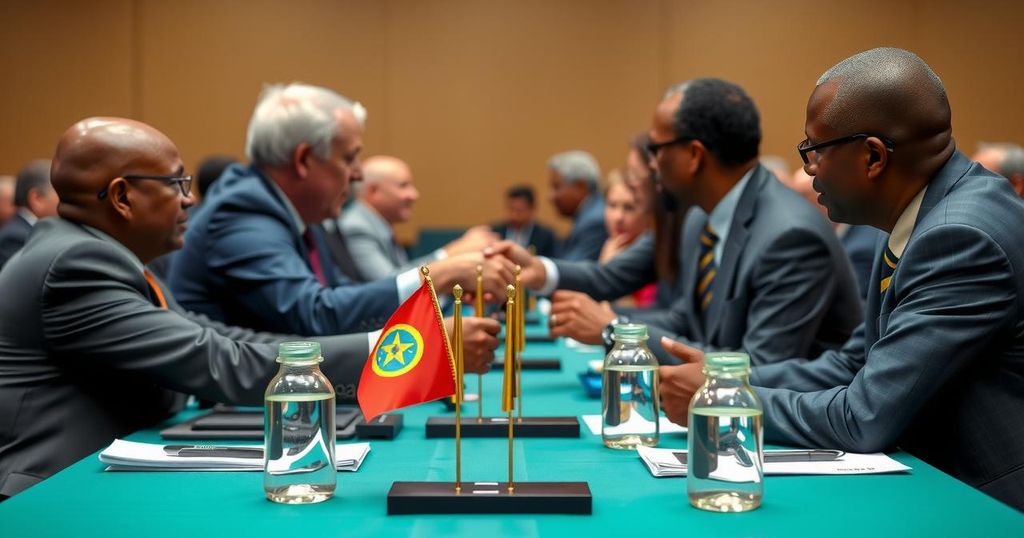Somalia and Ethiopia Reestablish Diplomatic Relations Following Addis Ababa Discussions

Somalia and Ethiopia have restored diplomatic ties after months of tension, facilitated by talks in Addis Ababa between President Hassan Sheikh Mohamud and Prime Minister Abiy Ahmed. The agreement follows the Ankara Declaration and highlights the necessity of bilateral collaboration to foster regional development. Technical committees are currently drafting final details of the agreement, which addresses Ethiopia’s need for coastline access while reinforcing cooperative ties between the nations.
After months of diplomatic strain, Somalia and Ethiopia have successfully reconciled their relations by agreeing to reopen their diplomatic offices. This significant development occurred during a meeting between Somali President Hassan Sheikh Mohamud and Ethiopian Prime Minister Abiy Ahmed in Addis Ababa. The discussions aimed to foster cooperation and partnership, ultimately contributing to stability and development in the Horn of Africa region, as highlighted by the recent Ankara Declaration mediated by Turkey.
The tensions between the two nations were rooted in Somalia’s closure of its embassy in Ethiopia and the designation of the Ethiopian ambassador in Somalia as ‘persona non grata.’ However, following the fruitful negotiations in Addis Ababa, the leaders expressed a commitment to restore and elevate their bilateral relations. “They agreed to restore and enhance their bilateral relations through full diplomatic representation in their respective capitals,” the communiqué stated.
In addition, both leaders recognized the importance of collaboration within regional and multilateral platforms on issues of mutual interest. Ethiopia’s prior agreement with Somaliland regarding access to the Red Sea, which required recognizing Somaliland as an independent entity, had triggered discontent in Mogadishu. Nevertheless, Turkish President Recep Tayyip Erdogan played a crucial role in facilitating dialogue, ultimately leading to the current agreement.
The negotiations continue, with technical committees still drafting the final details of their renewed partnership. It is essential to note Ethiopia’s persistent need for access to the coastline due to its landlocked status, a matter that the current discussions seek to address with mutual benefits. The agreement, therefore, provides a framework for improved relations and regional stability as both nations move forward in collaboration.
The reconstruction of diplomatic relations between Somalia and Ethiopia comes against the backdrop of historical tensions characterized by territorial disputes and resource competition in the volatile Horn of Africa region. The recent diplomatic fallout saw Somalia recalling its diplomats and closing its embassy in Ethiopia following Ethiopia’s dealings with Somaliland. However, with the intervention of Turkey and a focus on mutual strategic interests, the two countries have now committed to restoring their diplomatic ties. This development is vital for regional collaboration and could procure significant benefits for both nations.
The recent rapprochement between Somalia and Ethiopia signifies a positive step towards regional stability and cooperation, emphasizing the importance of diplomatic dialogue even amidst prior tensions. With both nations agreeing to fully restore their diplomatic missions, the commitment to mutual interests and benefits could foster deeper ties, enhancing prospects for development in the Horn of Africa. The ongoing negotiations underscore the importance of regional partnerships in addressing long-standing issues such as access to coastline and collaborative governance.
Original Source: www.garoweonline.com








